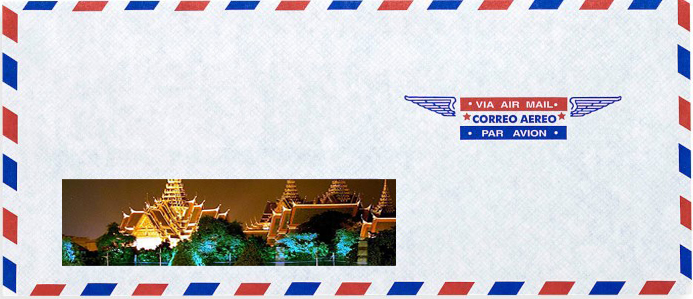Since New Mandala posted the alleged letter from the Crown Prince’s four sons late on Wednesday, interest has been running hot with thousands of readers logging on to read the letter. When I posted it, I said that I could not vouch for its authenticity. At the time, I was about 70 percent confident that it was genuine (if one can put a percentage on such things). Now, for what it is worth, my confidence level has risen to about 85%, based on some additional information received.
However, in some respects, the issue of the letter’s authenticity is less important than its cultural significance. As an anthropologist I am often more interested in the multiple meanings of cultural artefacts than in their empirical veracity.
So, wearing my anthropologist’s hat, I think there are four connected reasons why this letter–authentic or not–is very significant indeed, in cultural terms.
First, it is another example of the fracturing of the Thailand’s royal public relations fa├зade, coming on top of the royal jet debacle in Germany and five years of the immersion of royal symbols in political contest. It is unsurprising that much of this fracturing ramifies from the contentious figure of the Crown Prince. There has always been an undercurrent of seditious talk in Thai society, but new communication technologies mean that inflammatory material can be readily circulated. Stories, images, letters and emails gain an almost magical potency simply from the pace and extent of their circulation. This potency is enhanced at a time when the monarch, and the monarchy, is physically and institutionally weak.
Second, and more specifically, the letter strikes at the heart of a core component of modern Thailand’s royal narrative. That narrative is one in which a wise and good-hearted (national) father cares for his (national) children. The letter proposes a deeply subversive counter-narrative of a hard-hearted and un-caring father who has abandoned his bewildered sons, stripped them of their titles and cut them off from all communication. It was always going to be difficult to endow King Vajaralongkorn with the imagery of royal benevolence enjoyed by the current king. This letter is an indication that it may well be an impossible task. And it is not only the Crown Prince whose fatherly image is challenged; the whole family is caught up in the drama:
Each year, we write to our grandparents, Their Majesties the King and Queen, our father, His Royal Highness the Crown Prince, and our aunt, Her Royal Highness Princess Maha Chakri Sirindhorn. We would write to give them updates on our lives, informing them of academic progress, any medical issues, and to send well wishes to Their Majesties and Their Highnesses on New Years and birthdays. However, our letters were never answered. The communication has always been one sided.
Third, this tale of failed familial relations potentially resonates with some broader national sentiments. Over the past few years great angst has been expressed about national disgrace involved in the “loss” of a few square kilometres of windswept scrubland on the Cambodian border. “Not one inch of Thai soil can be surrendered,” the nationalists shriek. But what about the loss–or banishment–of Thai blood itself; royal blood at that? “For fifteen years, we have never set foot in our country, and we miss it far too much.” The letter tells a disturbing tale of four Thai citizens, grandsons of the king, being cast out of the beloved Thai “geobody”; expelled like illegal border-crossers. “When we were younger, we did not understand the drastic change in our lives, nor could we comprehend why we must live our lives outside of our beloved country.” The reassurance of the national embrace can be diminished when citizens of such status can be so easily cast out.
And finally, there is the ongoing anxiety about the succession, not just the next but the one after that. The Thai royal family is not exactly replete with male heirs who inspire national confidence. The presence of four (relatively) strapping lads with high-quality royal blood may set some tongues wagging. I doubt many people in Thailand entertain any serious prospect of one of the four sons becoming king, but their letter is a disconcerting reminder of the ability of royal fecundity to generate multiple lineages. Some may think that the thought of a highly Westernised and Western-educated Thai, living abroad, becoming king is absurd…
But it only takes a moment’s reflection to realise that things don’t always turn out as planned.
 Facebook
Facebook  Twitter
Twitter  Soundcloud
Soundcloud  Youtube
Youtube  Rss
Rss 